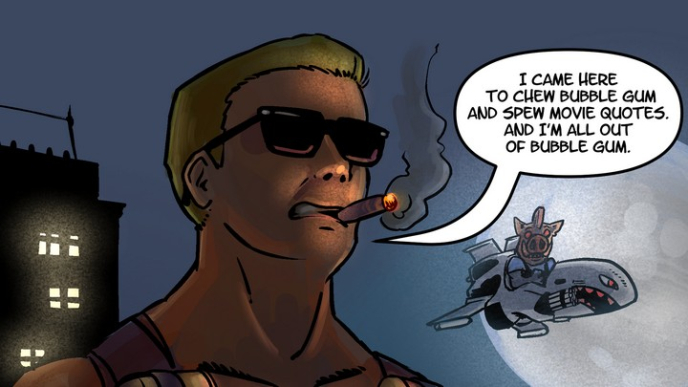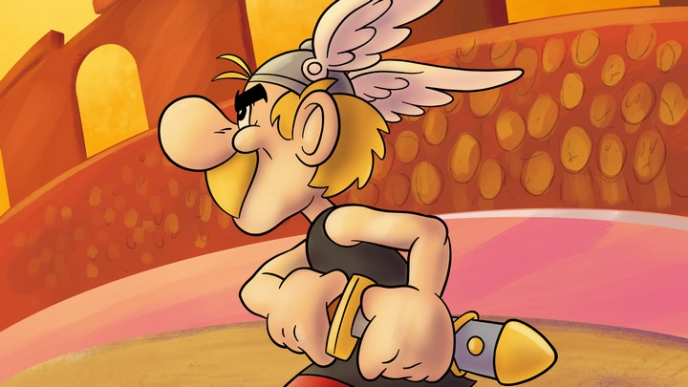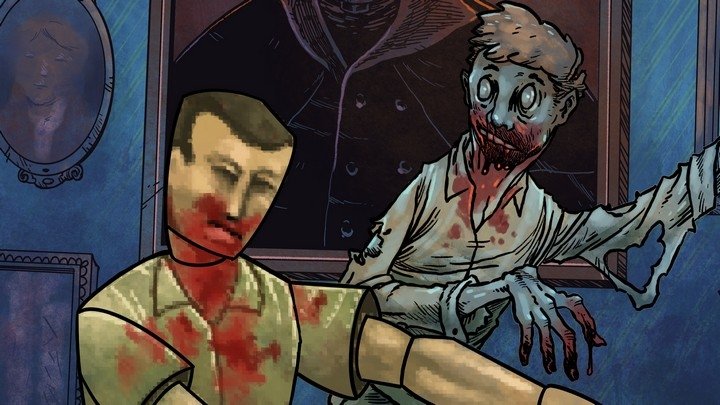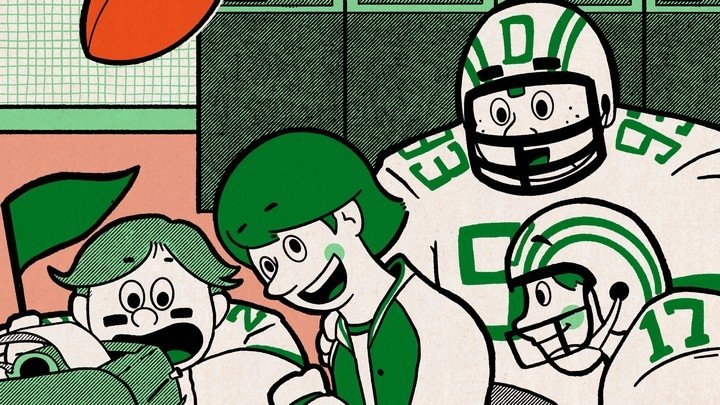Spinning beats with Yuzo Koshiro
A brief conversation with the legendary composer on remastering classic game tunes to ride the vinyl craze wave.
I'm an unabashed fan of the work boutique music label DataDiscs has been doing in remastering and reissuing its steady stream of classic SEGA soundtracks for vinyl. The company's 12th record, Altered Beast, ships soon, and aside from the fact that their productions are exclusive to vinyl and therefore unavailable to those who prefer CD or digital formats, their work is more or less impeccable. You'd be hard-pressed to name another publisher who manages to issue such brilliantly recreated game audio with well-crafted packaging with such frequency, and it was a huge influence on the genesis of Retronauts Radio episodes.
Even within the company's collection of first-rate SEGA productions, though, a few releases stand out: Namely, the works of Yuzo Koshiro. A composer turned game development executive, Koshiro single-handedly redefined the nature and potential of game soundtracks in the ’80s and ’90s; as Chris Kohler mentioned in a recent Retronauts episode, his work with the Super NES's audio sampling technology for ActRaiser made Final Fantasy IV composer Nobuo Uematsu scramble to improve the fidelity of his own work to remain competitive. Koshiro is regarded as something of a god among game composers, and rightly so; even now, with an independent studio to run, he produces an incredible volume of top-flight game music on a regular basis. (His latest large-scale project, Etrian Odyssey V, ships this fall in the U.S.)
Koshiro's work has appeared on several DataDiscs releases so far, including the first two Streets of Rage titles and Revenge of Shinobi, and his work sounds as vital and engrossing as ever. During a recent interview about the history of Koshiro's development studio Ancient, I also spoke to him about his work with DataDiscs and the process of revisiting his older work on a format of similar vintage.
Retronauts: How heavily have you been involved with the DataDiscs releases?
Koshiro: That started actually when I received an email from the person in charge of these at DataDiscs saying that they'd like to put out a record for Streets of Rage. I said, "Of course, that sounds like a very interesting idea."
Retronauts: So have you been actually involved with the production of these albums? You know, the mastering and the recording?
Koshiro: Yes, I've been involved in that. What I've done in order to create these new masters… I had to take out a PC-88 [vintage Japanese personal computer], take the floppy disks, and record the sounds directly off of that. For about half of the tracks, I've recorded them myself. And over at DataDiscs, they have a device that can let them take sound digitally off of a SEGA Mega Drive [Genesis], and so they did that for the other half themselves. The mastering was all done over at DataDiscs, so I was really only involved in helping them get the sounds off of the PC-88.
Retronauts: So you say PC-88 even though these are, you know, Genesis Mega Drive games. So you're talking about the original compositions? You're going back to, the files you worked with originally when you first composed these games?
Koshiro: So when we were originally programming the sound for those old games, we were developing it on the PC-88. So for those tracks, we would need the sound from the PC-88 itself.
Retronauts: Besides the PC-88, looking at the audio sources... different versions of the Genesis had different audio quality. Are you involved with sort of determining which hardware is the ideal version to take the sound from?
Koshiro: No, I haven't been involved with that part. It was somebody over at DataDiscs who would find that information — you know, decide which one they would be using for each track for the game in general. I didn't have any say in particular in that.
Retronauts: So how does this process differ from producing a CD soundtrack?
Koshiro: I don't really feel like there's much of a difference on my end whether I'm working with vinyl or CD. On my end, there isn't really anything else that I do. But for vinyl records, of course, you do need to do a special kind of mastering for that. But since DataDiscs is handling that, there's nothing that I need to be involved in.
Retronauts: As a composer who works with digital media, that's really been your specialty through the past 30 years of composing. Do you find it strange to put these game sounds onto an obsolete format like this?
Koshiro: Yeah, I thought it was a very interesting idea. I was really happy to hear about it, because obviously this is something, you know... to think that over 25 years later somebody would be putting this out on a vinyl record overseas? It's a huge honor. I had no idea that this could ever happen. I'm honestly overjoyed at the prospect.
Retronauts: As someone who creates music, what do you think of the way of vinyl has sort of, kind of come back from the grave over the past few years? Ten, 20 years ago, you'd go to a used record store and people would be giving away records for $1, you know, 200 yen. Now they've become a premium format again.
Koshiro: That is a tough one. I think it's extremely interesting that records have come back. To be honest, though, there isn't really anybody around me who really buys and listens to records. So, I doesn't have too much knowledge there — it's the same way for me, too. But of course, DJs, for example, have always been using records when they are playing their sets. So in that sense, I'm extremely happy to have my work is on records. To me personally, though, it doesn't really feel like it's that huge of an event.
Retronauts: You mentioned that DJ's have been using records all along. I know the Streets of Rage soundtracks were very heavily influenced by that kind of club music. So in a way, it's almost like bringing these two things together. Are there any soundtracks you've worked on that you'd like to bring to vinyl?
Koshiro: Back when I was working on the Streets of Rage soundtrack, around 1990, '91, '92... at the time, I was often going to clubs myself. They'd be playing techno music and that kind of thing, and obviously there weren't many DJs using CDs back then. They were usually spinning records, and that was my biggest influenced as I was creating the Streets of Rage soundtrack. To have that music put back into the vinyl format — it's a very unusual turn of events. Really makes you think.
I feel like Streets of Rage was an album that I'm really proud of. It's, you know, a sort of reproduction or simulation of the club music I was listening to at the time, and the things I thought I'd want to listen to on vinyl are basically all there. And the Etrian Odyssey soundtracks... starting with the fourth game, we've used orchestral music for those. I'd love to put those on vinyl and see what they sound like.
Also, The Scheme. I think that's here in our office showcase... [The Scheme was a PC88 action game published by Bothtec in Japan only.]
Retronauts: What is it about that particular soundtrack that brings it to mind?
Koshiro: The Scheme was the very first soundtrack I put out under my own name. At the time, CDs weren't really that big of a thing yet. So there's actually a cassette tape release of that soundtrack, but there are no records, even though at the time people were still selling records quite regularly. I think it would be interesting if to hear that one remastered with enough quality to put on vinyl.
Retronauts: Someone recently introduced me to your retro SoundCloud account where you've recreated some of your compositions over the years in a sort of throwback style. It's interesting to hear you revisit compositions in different styles, like for different types of chips. Do you actually program those on the original chips, like the Konami VRC6? Or is it, you know, synthesized sound, emulated sound?
Koshiro: I honestly haven't looked at the stuff I've posted to SoundCloud lately, but... Well, for example, there are some where I has just have those vintage sounds set on to different synthesizers. But there are also some tracks which I've recorded using the actual sound chip. So it's a little of both.
To speak to your VRC6 example — there is an actual cassette tape that Konami produced that you can attach to an apparatus and put that into a Famicom and program the stuff on your Famicom. So I use original development hardware like that, for example.
Retronauts: Do you create these retro-style projects just as a matter of Interest, or is it help keep your programming skills sharp? I'm curious to know what motivates it.
Koshiro: One reason behind it is that honestly I just love songs made with those sounds so much that I do occasionally want to go back and make them myself. But of course, for example, Protect Me Knight, which developed here [at Ancient] — the sounds in those games are very retro. They are very old. Originally, we had tried to make them using an emulated sound chip but it didn't feel at all right to me. Like, "This is not the proper sound." So we used a device that let us make actual NES sounds. Using that, we could make something that was actually authentic for the game itself. So in essence... it's ultimately something I do in order to help us make our songs for the games we develop.




